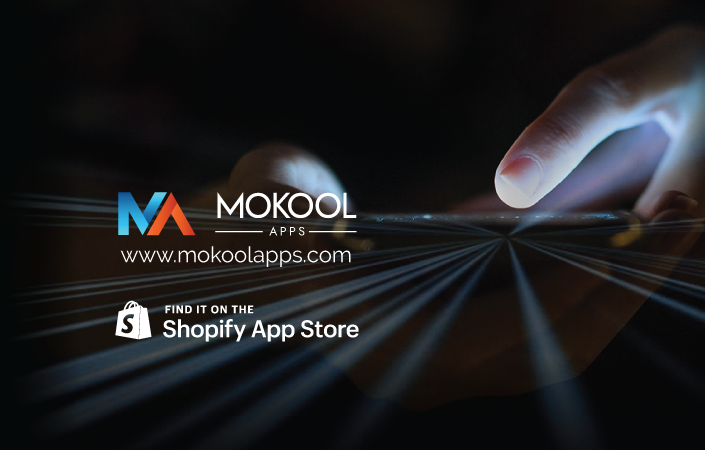01:26 – About MoKool Apps
02:17 – Creating Shopify eCommerce Add-Ons
03:01 – How to automatically translate your online store into ANY language
04:14 – Covid Notification Add-On
08:16 – On the generosity of free digital content, to support our communities
09:47 – How to get the Shopify Covid Notification app
10:30 – When MoKool Apps went BANANAS!
Click the “Connect” tab to browse Web/Shopify/YouTube links …
Website: mokoolapps.com
YouTube: MoKool Apps Channel
Shopify App Store: apps.shopify.com/partners/mokool
Covid Notification Tool: apps.shopify.com/mokool-notifications
Jason Bavington (00:02):
Hey everyone. Jason with DUX — Your Local City Guide and welcome to another one of our video blog posts. I gotta tell ya. These things there’s so much fun to do. I love doing these posts. I love speaking with all these different people and business owners and organizations and everyone in between and finding out all the cool things that people are doing during this Covid-19 crisis of ours. Right now, as the filming of this call, we are still knee-deep in Covid-19, but, you know, there is a light. There is an end of the tunnel out there. We will get there. We will persevere. And in the meantime it’s really important for all of us to be sharing different ways of things that we’re doing in our businesses. Different things that we’re doing to adapt our businesses, to pivot our businesses, you know, like to literally still keep the lights on, but more importantly, try and keep some money flowing into the bank or positioning ourselves for post-Covid life. Now to that end, we have on the call today Mukul, of MoKool Apps. Hey Mukul!
Mukul Verma (00:59):
Hey Jason, how you doing today?
Jason Bavington (01:01):
Good! So I’ve got to tell you guys. Mukul and I, we go wayyyy back. Like, 2012 back. That’s like, an eternity. That was like iPhone3, iPhone4 I think was just coming out. I don’t know. Yeah. Crazy, crazy time. Yeah. So I met Mukul back in 2012, at an app meet up, actually. And he’s one of the Founders, one of the main people behind MoKool Apps. So tell us a little bit about MoKool Apps, what you’ve been up to for the past eight years. Some of your successes. You can tell us some of your failures too. We’re all people here.
Mukul Verma (01:33):
Yeah, exactly. Well, yeah, I guess in any business you have a little bit of everything in it and and on it. So, started MoKool Apps back in 2012, but shortly before actually I met yourself at that meetup. And in the last eight years we’ve done probably over a hundred apps. We sold a number of apps. We’ve had some pretty good successes on it. We’ve had some bigger projects that haven’t worked on it as well. So we’ve kind of seen all different aspects of the app game. And we started MoKool Apps in the iOS space and moved over to Android. And as of now with Covid-19, we’re actually getting into the Shopify app space, which seems to be a very good fit versus what we were doing before.
Jason Bavington (02:13):
So, for those of the people on the call that are looking at the blog, for those people who aren’t familiar with Shopify, do you want to just give a little bit of background about what Shopify is and how it works?
Mukul Verma (02:23):
So Shopify basically is an easy way to start an eCommerce store. So selling online obviously right now is massive and with Covid-19 the industry is just booming, right? So it’s doing really, really well versus a lot of other industries, which unfortunately they’re not seeing that kind of success. So what a Shopify app does is it’s basically like a WordPress plugin? An app would be on the Shopify app store. So when we started out, it was in translations and currencies. So the translation app that we released basically translates a Shopify app store into different languages. So we can open up your same store to different countries around the world.
Jason Bavington (03:01):
So if I had a Shopify store and I’m selling product online. And now, now I really really need to sell product online, because my retail store is shut. Using your plugin, we can have the contents of that store and the contents of my product descriptions translated into any language that the User wants. Is that the way it works?
Mukul Verma (03:20):
Yeah. So what we do is we actually use Google translate. Just becasue we want to make sure the accuracy is there and they’ve always spent a lot of money in perfecting the translation. So we actually just power it by Google Translate, which is a little more expensive, but it gives a better User Experience and everything is about giving a better User Experience. So when someone comes to the site, they’ll automatically detect based on country that they’re in. And we’re doing a couple of other cool things as well. Like we’ve added analytics in there, right? Somewhere like Ireland, 99% of people in Ireland actually speak English. So translating into Irish actually would be counterproductive, right? And you learn that through the analytics, so when someone goes there. So translate from Irish right back to English and rather read it in English because that’s just how it is. So we’ve added some cool things on it. So yeah, it’s a pretty cool industry so far.
Jason Bavington (04:08):
Yeah. And so you’ve done the translation app. And then you have a couple other Shopify plug-in apps in the works that are ready to launch really, really soon?
Mukul Verma (04:17):
Yeah. So we have three projects on go. This is the translation one. We also have the currency one which is on the go. And then what we’re doing actually just with COVID-19 and that…we’re very fortunate to stay at home. I get to sit at home with my family and I’m pretty fortunate. And the only reason we can do that is the essential service workers and those guys actually go out there every day and they take the risk of doing that, right? So since this all started I’ve kind of looked at a way that we can give back and something that we can do. So after working with the developer on translate app, the idea came and I’m like, you know what, why don’t we build a notification app which could easily let store owners so that their customers know what they’re doing. And built a bunch of content around Covid-19 on it. So, there are prepopulated messages on there. When you really think about it, it’s either going to be around shipping or it’s going to be around stores are either open or closed or stuff like that, right? So if we can just create the content and we just plug in their stuff, make it easier for store owners to actually get their message across to the customers. And that we’re just giving away for free on it just because it’s kind of our way of giving back through this whole situation.
Jason Bavington (05:17):
Yeah. So, if I have a store. I have a Shopify website. And, you know, maybe my curbside pickup hours changed or something has changed with shipping. We need to, you know, we need to add on an extra day for shipping because UPS is all backed up or something. These are the kinds of notifications that I can just type in on the back end of my Shopify website. And then through your plugin, your plugin will automagically show information to all the customers and all the visitors to the website. And the store owner doesn’t really need to do anything else besides that, right? They just need to type in the notice and then, through magic, it just appears on their Shopify site, right?
Mukul Verma (05:53):
Yep. And that’s exactly it because I’m assuming one of two things. I’m assuming either the store is not doing well. And that’s obviously a big panic, so they’re busy. Or their store’s doing really well, right? And they’re busy with that. So store owners are busy. Small owners, small business owners are usually very busy with it. So you also want to make their life easier and create a great customer service experience.
Jason Bavington (06:12):
Yeah. And I imagine for a lot of these store owners who, you know, being online, selling e-commerce online might be a brand new thing to them. They might’ve only started up in the past four, six, eight weeks. I’ve been reading reports on Shopify and Shopify usage that has just, like, exploded. It’s gone through the roof. It’s like one of those second most valuable companies in Canada right now in the tech industry, like some crazy, crazy stats. And a lot of these owners and users, they really don’t know anything about the tech behind it. They just need to sell their products. So for a lot of people that are new to selling online, having plugins like yours, which can translate my entire site into another language, show me different currencies for some of our international buyers. And now sharing great, highly relevant, you know, moment by moment, relevant information regarding Covid-19 and, you know, curbside pickup and whatever it is with the audience, I think is really, really valuable. So the store owner can just do what they need to do which is just, you know, fill those orders and get those orders out the door.
Mukul Verma (07:11):
Exactly. And yeah you’re right, though. Shopify is now the second most valuable company in Canada, which is kind of crazy. After Royal Bank. Usually Royal bank holds number one, right? But it’s like the second. So it’s just, it’s going through the roof, which is great. So it’s a great time. The other thing to mention is that with Covid-19 coming, we kind of, once it started hitting we kind of pushed our episodes away, our efforts away from iOS and Android and more toward Shopify, just because it was a huge opportunity there, as still owners are gonna need these things to help their customers.
Jason Bavington (07:43):
And have you seen other Coviud-19 related plugins, on the Shopify app stores? Are there other companies that are doing something similar to you? Or are you guys like at the forefront of offering relevant solutions?
Mukul Verma (07:53):
So I have actually not seen any that are complete dedicated around Covid-19. That’s part of the reason that we’re doing the free plugin or the free app for the Shopify store. Because I have not seeing anyone actually do it, right? So I’m like, you know what, given the resources we had it was not a difficult thing for us to do. So yeah. So the reason we did it, somebody else is doing it? Great. Then we’d go in and do something else, right? But yeah, I haven’t seen it.
Jason Bavington (08:15):
Yeah. And that’s great to be able to offer that to the community at your own cost because people need a lot of resources right now. Free. Paid. You know, free is essential. You know, we see a lot of online courses being given away for free right now. A ton of digital content right now is free simply to, to help the different communities. And that, I think that’s really important because that helps collectively move us all forward, right? Because, you know, Covid will come and go. There will be a new normal after this. We’ll all hopefully go back to our businesses and we will, you know, get back to our normal revenue streams. And our normal incomes. But right now it’s less about the income and less about the revenue in some ways and more about helping the community. Yes, the stores they need to have that revenue in the door. But, you know, if you’re able to help someone out by offering them something for free, then I think that’s fantastic that you’re able to do that. And I celebrate MoKool Apps for being able to offer this tech to the community because if there, if there ever was a time that time is now. So yeah. Kudos to you guys.
Mukul Verma (09:16):
Well, it’s absolutely, but it’s a really small part compared to what other people are doing, right? Like it’s crazy to think that we live in a world now where our grocery, the people who work at the grocery stores. Our nurses. These are the real superheroes and these are the real heroes in this time. So what we’re doing is just a very small part versus, let’s say versus what other people are doing. However, there are going to be a lot more people now that are laid off, so they will try to get online and they’ll try to search stores, right? And they do need this kind of stuff that may help them accelerate.
Jason Bavington (09:47):
So if I’m a store owner and I’m interested in your plugins that you have, I just go to the Shopify website. I just log in and go to the plugin section and I browse for Mokool Apps and I’ll see all your goodies?
Mukul Verma (09:57):
Yeah. So you can go to two places. You go to apps.shopify.com, which is the app store for Shopify apps. Or you can go to mokoolapps.com as well. And right from mokoolapps.com you can get a link right to our Shopify apps.
Jason Bavington (10:15):
Okay, cool. And what we’ll do is we’ll put all those links in the blog post, so people can click on it from there to easily get to the Shopify app store. That’s really, really cool. So now pivoting just a little bit, I know back in 2012 you guys launched this crazy app and it was, it was BANANAS, this app. You wanna just tell us, give it a minute or two and tell us about, you know, that crazy first app of yours?
Mukul Verma (10:40):
You are really old school here. And yeah, this is a crazy story. It’s a great, it’s a great business story as well, because we ended up having an app called Monkey Jump, right? And we tried to get this app perfect. And we tried to get everything out there for it. And what happened I came across this programmer who I was going to get to work on it, but I wanted a full time guy and he was working full time. So hee said, well, I can work part time and he seemed like a smart guy. So we actually took some assets from that app and created another app like kind of like what we’re doing for the Shopify app. It’s just like a small app. At that time, it was just like, okay, let’s just do a test app and throw it into the market. And that was Go Bananas. And long story short, we released Go Bananas out there,
Mukul Verma (11:15):
put the app togother. And to date, I still don’t understand…ohh, there it is. To date I still don’t understand what the big deal of it? Because I think it’s a pretty boring app But apparently, and this was before there were all these hyper-casual games, right? So it’s just a very simple, very boring game. But we got, like, 4,000 installs on day one. So we ended up actually building up the app. We sold the app. We got a royalty deal at McDonald’s with the app. So it actually built into something pretty big, out of something that was just supposed to be a test project out there. So yeah, it was, it was definitely a huge success for us.
Jason Bavington (11:50):
That’s funny. So, yeah. And you started this app based on the core concept of another app and then this app like totally took off. And you’re right. It’s a very simple app, but I remember playing this and it was so addictive. It was a ton of fun to play this game. And like, it was your first one. So the fact that you did that, is just, it was, yeah, it was totally bananas.
Mukul Verma (12:10):
Yeah. Yeah it was. And it’s amazing to think since 2012 we were doing hyper casual games before there were hyper casual games. Now they have all these like silly little games. I don’t want to say silly, but you know what I mean? Like all these little small games where you just click and they’re very small game play, right? And back then, like we didn’t know if we were on to something. I remember you and I actually had a conversation back in 2014-15, and I kind of had two paths to choose — was do we build a really big game where we can try and build a brand around a really big game? Or do we just build a lot more of these smaller games? And I’m like, you know what, I want to build a bigger game and build that for the long term. Unfortunately that took a long time. It didn’t work out the way that I wanted it to work. So maybe in hindsight, actuallty building more apps like that would have actually been, would have been a better path to go on. I remember I was talking to you about which way should I go, right? Back in like 2015 maybe that was?
Jason Bavington (12:59):
Wait, it wasn’t, it wasn’t my bad advice that steered you off course, right? Had nothing to do with me, right?
Mukul Verma (13:04):
Actually, I remember you told me that I should go for the hyper-casual games, right? So the fact that I didn’t listen to you, say, may have had something to do with it? I don’t know, right? So you were actually right. It would have been better to go. And then after that hyper-casual games just took off.
Jason Bavington (13:18):
Yeah. No, it’s definitely been a fun ride. It’s really interesting to see you pivot into Shopify apps. I think that’s a great space for app developers to be in right now. I can see a lot of the potential there. If you’re an app developer out there, definitely check out the Shopify app store and all the development tools available to help you create these apps because it is, this is literally like where the iOS space was in 2012 and earlier. It’s early in the game. And as we’ve seen with Mukul and MoKool Apps, they pivoted really, really nicely into this space. And I’m looking forward to hearing, you know, more of your success stories going forward. So if you’re watching this video anywhere else, but on our website, head on over to there, it’s dux.city, that’s d u x . city, and then click on the blog link. We’ll have the MoKool Apps blog post there for you to review. And yeah, Mukul, we’ll put your links to the Shopify app store there so people can click on those, check it out, download it, integrate it into their Shopify website. We’ll also put links to the MoKool Apps website, so you can keep connected with them as they continue to create all this goodness going forward. So again, my name is Jason from DUX — Your Local City Guide with Mukul from MoKool apps. Mukul, thanks a lot for being on the call today.
Mukul Verma (14:33):
Thank you for having me. It was fun.
Jason Bavington (14:34):
My pleasure. And yeah, so everyone keep the goodness flowing. Keep supporting local. Keep supporting local. We will get through this all. We will see the other side. Until then take care.






